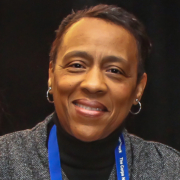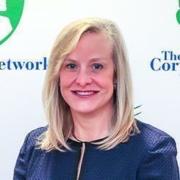
An update and reflection on the Moving Forward Initiative from Capri St. Vil, Project Director for the Moving Forward Initiative and Director of Education and Workforce Development at The Corps Network.
Greetings,
Last year, The Corps Network (TCN) launched its Moving Forward Initiative, which is supported by the W.K. Kellogg Foundation. The primary purpose of this initiative is to expand career exposure and increase employment in conservation and resource management for young adults of color. To move in this direction, TCN will explore unconscious bias and structural racism within our own organization, our member Corps, and America’s land management agencies.
As a foundation for this work, we have developed a series of blogs, that can be viewed on our website. To date, these blogs have focused on what I call “facing history.” Through these blogs we hope to present historical information, giving all of us the opportunity to explore and better understand the “why” behind the lack of diversity in the conservation and environmental fields.
The next set of blogs in this series, which will be presented later this month, will focus on critical race theory. Critical Race Theory is a “theoretical framework in the social sciences that uses critical theory to examine society and culture as they relate to categorizations of race, law and power.”[1] For this exploration, we will be supported by several academics and experts in the field.
When looking at the concept of race through a critical race theory lens, it is necessary to understand that race is a socially constructed concept and not one that is biologically grounded and natural. However, even though scientists have determined that race does not exist, this does not, nor has it stopped society from using racial distinctions to define and divide us. These racial distinctions have been supported by different institutions, including the media. To better understand the social construction of race, our first guest blogger, Dr. Shantella Sherman, whose area of study is Eugenics, will focus on a statement by National Geographic in its recent issue on race (The “Race Issue,” April 2018). National Geographic began the article with this bold statement, “For Decades, Our Coverage was Racist. To Rise Above Our Past, We Must Acknowledge It.”
As someone who taught media/cultural studies for nine years at Seattle Central Community College and at Antioch University Seattle, I am aware of the role that the media plays in constructing and naturalizing our conceptions of race. I am drawn to the words of Dr. John Edwin Mason, a University of Virginia professor who studies the histories of Africa and Photography, who made the following statement when National Geographic asked him to examine their works.
“Through most of its history, National Geographic, in words and images, reproduced a racial hierarchy with brown and black people at the bottom, and white people at the top.”
There was a complete absence of urban, educated Africans in the magazine’s pages… Black people were presented as static, primitive and non-technological, often unclothed or presented as savages… And that image, which persisted until the 1970s, shaped how the magazine’s readers — largely white and middle class — perceived black people.[2]
We define the Moving Forward Initiative as a journey, and we have looked for support from various individuals and organizations on this journey, with one of them being “Equity in the Center,” who recently released their report, “Awake to Woke to Work: Building a Race Equity Culture.” In using their words, “Equity in the Center works to shift mindsets, practices, and systems within the social sector to increase racial equity. We envision a future where nonprofit and philanthropic organizations advance race equity internally while centering it in their work externally.”
In addition to partnering with Equity in the Center, we have sought the assistance of a facilitator for the Moving Forward Initiative, Juanita C. Brown, who will lead our discussions on FLEEP (an internal social media and messaging platform), as well as assist us with conference calls, virtual meetings, and webinars. We will also continue working with The People’s Institute for Survival Beyond and offering opportunities for our Members and constituents to attend PISAB’s “Undoing Racism” workshops.
I invite you to join us on this journey. In the coming weeks, you will hear more from me about these and other forthcoming aspects of the MFI, and I apologize to all of you for my silence to date. I will end with this statement from National Geographic in setting the stage for this continued work, “We hope you will join us in this exploration of race, beginning this month and continuing throughout the year. Sometimes these stories, like parts of our own history, are not easy to read. But as Michele Norris writes in this issue, ‘It’s hard for an individual—or a country—to evolve past discomfort if the source of the anxiety is only discussed in hushed tones.’”
Let’s begin the journey. I hope you will join us.
Thank you.
Capri St. Vil
Director of Education and Workforce Development
Project Director for the Moving Forward Initiative
[1] https://en.wikipedia.org/wiki/Critical_race_theory
[2] https://www.nytimes.com/2018/03/13/business/media/national-geographic-race.html


































































